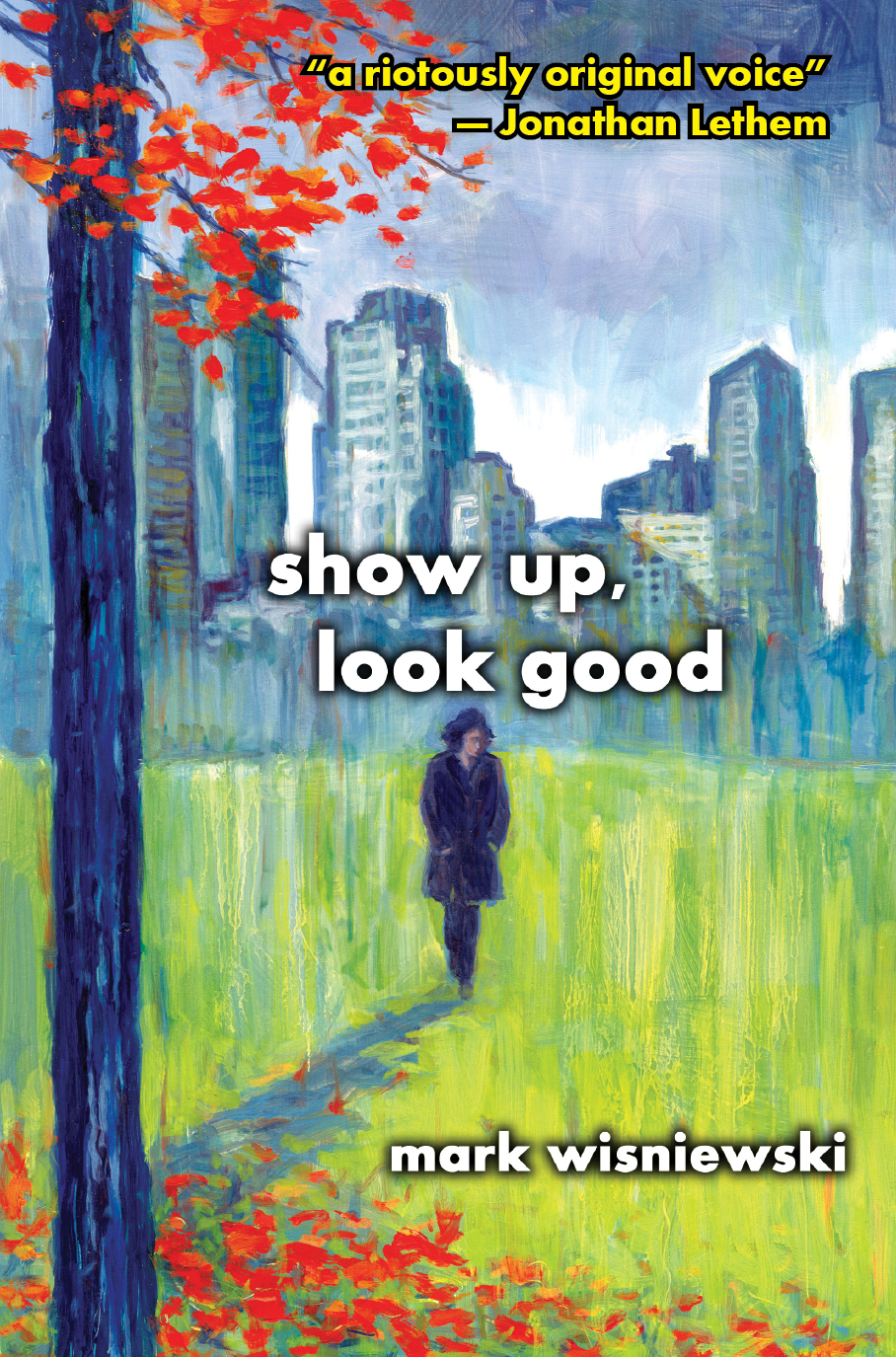
Show Up, Look Good
a Novel
by Mark Wisniewski
Gival Press, 2011
$ 20.00
ISBN: 978-1-928589-60-0
At first when I started reading Show Up, Look Good, I wanted to compare it to Bright Lights, Big City, the Jay McInerney tour de force from the 1980’s, partly because of the similarity of the cadence of the titles but also because of the hip sensibility and the dark sense of humor common to both; both stories take place in New York City, as well — glamorous Manhattan, specifically. But once I got further into the story I started to think of the protagonist, Michelle, a girl in her mid-thirties from Kankakee, Illinois, come to “make it” in New York, in terms of Holden Caulfield, the runaway of The Catcher in the Rye. Both characters have a personal sense of honor and both see through phonies.
Even Michelle’s language sometimes sounds like Holden’s: “...but what really killed me about this whole ‘Have you read so–and–so’ game,” she tells the reader while describing the so-called literary workshops of a pretentious roommate she has in the Village, “...if everyone there read every book they said they’d read, none of them could have written a word.” Things were always “killing” Holden, too, with their absurdity or hypocrisy. (“Sensitive. That killed me. That guy Morrow was about as sensitive as a goddam toilet seat,” Holden observes about a prep school classmate ). Elsewhere Michelle makes the similar Holden-like observation: “...it killed me how many times in my thirty-four years I’d gotten along with people but kept cruising toward being alone.”
But all this searching somebody to whom to compare Wisniewski’s work amounts to is a reviewer’s way of introducing him to readers. Who is he “like,” and will readers be warned or welcomed by the comparison? The blurbs compare his work to Carson McCullers, Truman Capote, Elmore Leonard, Ruth McKenney (My Sister Eileen). One even does compare Michelle’s picaresque adventures in New York to Holden Caulfield’s. In the end, though, we might just as well take Wisniewski on his own terms because the story and characters don’t necessarily fall into these neat comparisons.
In the end we might just as well take Wisniewski on his own terms because the story and characters don't necessarily fall into neat comparisons...
The story is a familiar one — the bumpkin from the Midwest arriving in New York City to seek her fortune. But the back story is immediately comic, before it becomes dark. Michelle’s fiancé, Tom, back in Kankakee, has thrown her over for a sex toy. She arrives in New York with little more than the shirt on her back (and her Plymouth Reliant) and finds accommodations on 49th Street, with Etta, an elderly lady with eccentric requirements (bathing her, for one). Michelle meanwhile has discovered a way to make a living by scalping tickets to the Letterman Show, selling complimentary passes for as much as $300 a pop.
The story takes a turn for the dark, though when the building on 49th Street burns. During this episode she meets Ernest Coolidge, the building’s super, an ex-New York Yankee recovering from cancer; his larynx has been removed and he communicates by writing sentences on a notepad. Etta goes to live with a sister in Brooklyn and Michelle finds an arrangement with the pretentious Greenwich village roommate, an MFA student at NYU.
Ultimately this arrangement falls through, just as her ticket-scalping does too, and Michelle finds herself exiled to Astoria, in Queens, having been “rescued” by a couple of swingers who want to incorporate her into a ménage a trois — from which she escapes. Pining to get back to Manhattan, Michelle nevertheless makes a stab at becoming a serious artist in the Queens studio apartment she moves to, and working as a factotum in a grocery store run by a self-styled tyrant. After losing this job, she runs into Ernest Coolidge again on the street in Queens, and the story goes back to Manhattan for its denouement.
Some of the story here feels disjointed. As her job in the grocery is coming to an end, Michelle finally comes to terms with the death of her mother, something the reader had not been aware of up until now. Her mother died in childbirth and Michelle’s father seems to have always held this against her; her father was a tyrant in the same way that Carmen the grocery store owner is. Michelle sees this now, sort of a revelation. Between the time Michelle loses her job in a bizarre sting engineered by Carmen and the time she walks home, she’s resolved her guilt about her mother’s death. Whew. And what becomes of all that painting she did, her striving to become a recognized artist? We never find out — unless this is just Wisniewski’s commentary on the futile motivations, however sincere, of people who want to be “discovered” in Manhattan. Certainly, we hadn’t had any inkling of Michelle’s artistic ambitions before her move to Astoria.
The final part of the story gets even darker, involving a murder and its cover-up and sinister unnamed criminals, and Ernest’s final instruction to Michelle, whom he regards as a daughter, is to scram, beat it out of New York to save her life from these mysterious people who will kill her. We don’t find out but we can guess she returns to Kankakee. Toto, There’s No Place Like Home!
So who is Mark Wisniewski like? Mark Wisniewski seems pretty unique, and this reader for one would like to give his other novel, Confessions of a Polish Used Car Salesman, a crack before deciding.

